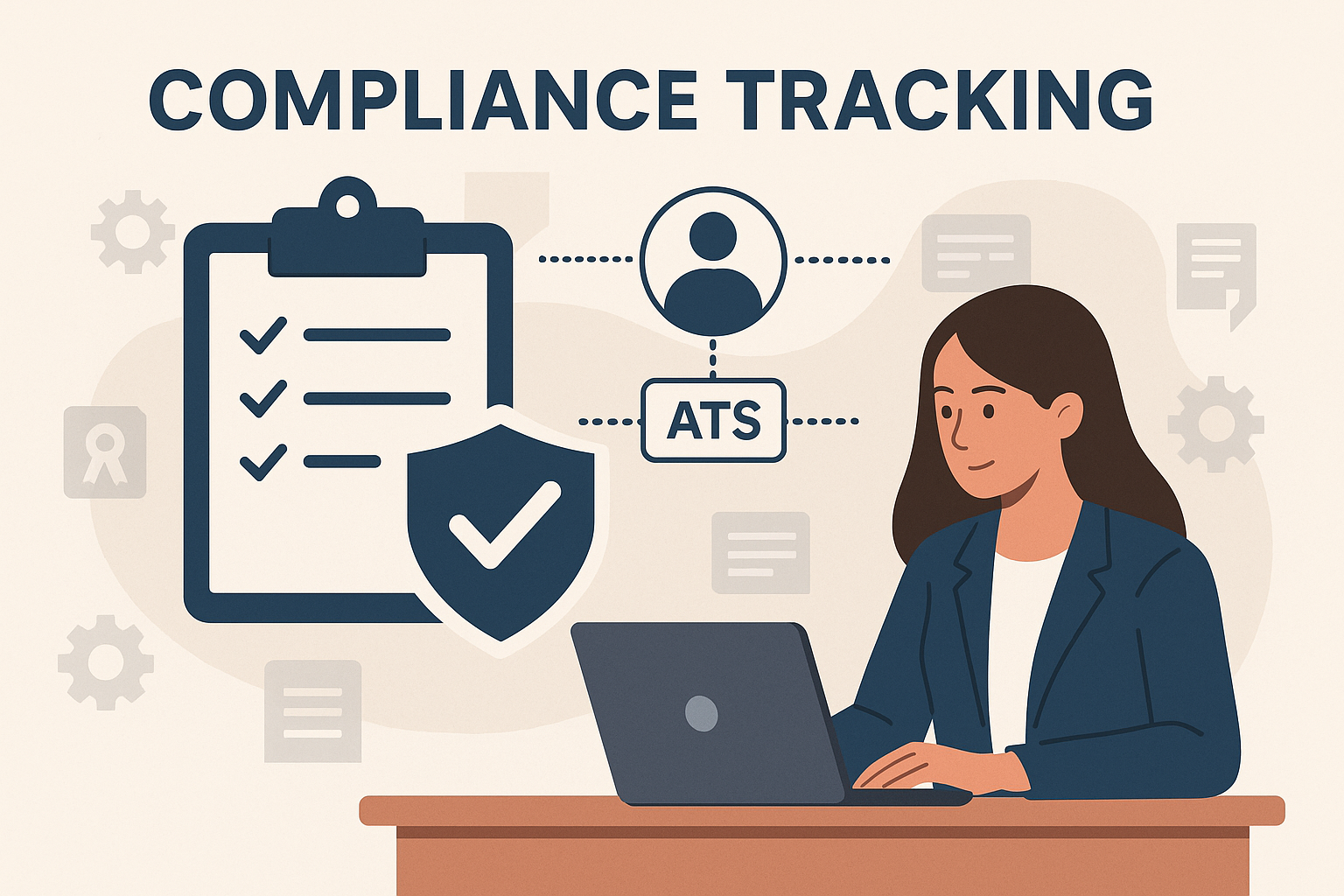Compliance Tracking: Ensuring Regulatory Adherence in HR
Introduction: Why Compliance Tracking Matters
In today's regulatory landscape, maintaining compliance is critical for organizations to mitigate risks and avoid legal repercussions. Compliance tracking in HR involves systematically monitoring and documenting processes to ensure adherence to laws, policies, and industry standards. Integrating compliance tracking with Applicant Tracking Systems (ATS) further enhances data accuracy and regulatory oversight.
What is Compliance Tracking?
Compliance tracking is the systematic process of monitoring, managing, and documenting HR-related tasks and policies to ensure adherence to legal, regulatory, and company-specific standards. This includes employment laws, data privacy regulations, anti-discrimination policies, and workplace safety protocols.

Why Compliance Tracking is Crucial for HR
Risk Mitigation: Reduces legal liabilities by ensuring adherence to employment laws and regulations.
Data Accuracy: Provides accurate, up-to-date records that can be referenced during audits or legal disputes.
Employee Protection: Ensures that workplace policies are implemented consistently to protect employee rights.
Key Components of Compliance Tracking
Employment verification
Background checks
Data privacy consent forms
Anti-discrimination policies
Workplace safety training records
Integrating Compliance Tracking with ATS
Integrating compliance tracking with an Applicant Tracking System (ATS) streamlines the management of regulatory documents and applicant data. Key benefits include:
Automated reminders for expiring certifications or required training
Centralized document storage with role-based access
Real-time monitoring of compliance-related activities
Digital records that can be easily retrieved during audits
Best Practices for Effective Compliance Tracking
Automation: Utilize ATS to automate data entry and track document expiration dates.
Data Security: Implement encryption to protect sensitive information during storage and transmission.
Audit Trails: Maintain comprehensive audit logs to provide verifiable evidence of compliance.
FAQ: Common Questions About Compliance Tracking
What are the consequences of non-compliance in HR?
Non-compliance can result in legal penalties, financial losses, and reputational damage.
Can compliance tracking be customized based on industry regulations?
Yes, ATS systems can be configured to align with specific industry requirements, such as healthcare, finance, or manufacturing.
How does compliance tracking integrate with ATS?
ATS systems can automate the collection, storage, and monitoring of compliance-related documents, reducing manual data entry and enhancing accuracy.
Conclusion
Compliance tracking is essential for safeguarding organizations against legal risks and maintaining a fair, compliant workplace. By integrating ATS with compliance tracking systems, HR teams can efficiently manage regulatory documents, automate reminders, and ensure ongoing adherence to policies and regulations.
HR Glossary: Master the Language of Modern HR
From recruiting candidates to onboarding new team members, MokaHR gives your company everything you need to be great at hiring.
Subscribe for more information

